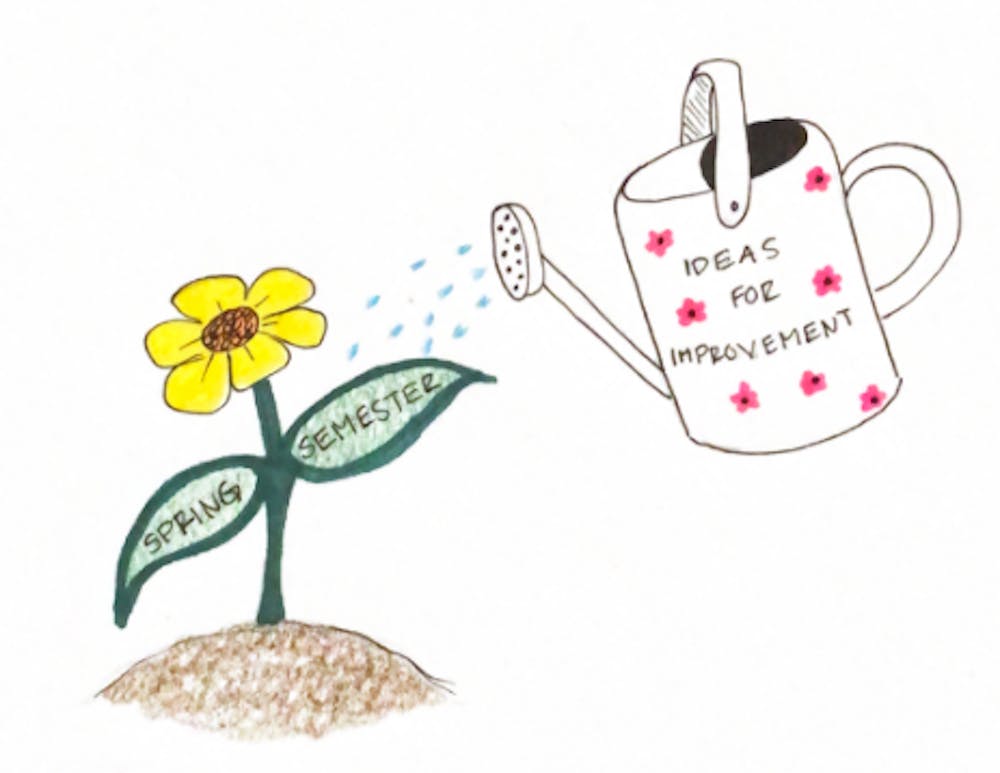Two in three students broke Covid-19 guidelines during the fall semester. More than three in four experienced worsened mental health. Although the college was successful in its mission of delivering in-person classes with no major outbreaks, the results of a Campus survey reveal that in the apparent trade-off between Covid safety and the emotional well-being of students, we’re losing both battles, and badly.
Let’s get this straight: students are disregarding rules, for one reason or another, and they’re experiencing significant spikes in feelings of hopelessness, isolation and overall despondency as they navigate elevated stress and exhaustion in academic and social situations. Twenty-nine respondents indicated an increase in non-suicidal self-harm; 51 indicated an increase in suicidal thoughts. While this tug-of-war between physical and mental health is an exceptionally complex one — ripe with nuances regarding harm reduction and compromise, one thing is clear: the spring semester cannot be a carbon copy of the fall.
We in no way condone violations that put our community at risk, but our survey reveals that there is room for criticism of how those rules are created, communicated and enforced, and that there are consequences to those rules, particularly on student mental health. And while superspreader parties remain condemnable, the survey suggests that most students broke less dangerous rules, such as having more than four close contacts — violations that also reveal a desire for greater social interaction and connection.
One challenge of the fall suggested in our survey results is a lack of access to spaces for socializing and events. More than 75% of students felt the options for places to safely spend time with friends were inadequate — and a similar proportion said there were not enough spaces to host events. A slow rollout of access to libraries and dining halls introduced early-semester social and academic challenges. Buildings that usually offer ample opportunities for both hanging out and studying — such as Bi Hall and Axinn — were open only to a limited number of students for a good part of the semester. If we’re to live and learn on this campus for another twelve weeks, the college should provide sufficient places for the organic socialization that has been integral to Midd’s community building.
The college must also introduce measures to increase equity for students by providing the equipment and funds for social activities to those who lack them and ensuring consistency in treatment of different groups. Efforts should be made to allow controlled student access to resources such as the gear room and Bergen Lodge, encouraging safe outdoor activities and providing a greater sense of normalcy to students who feel isolated or who spend much of their time in virtual classes on Zoom. Providing these resources also levels the playing field for students who may not otherwise be able to explore Addison County to the same extent as students who own outdoor gear.
Furthermore, while sports teams were able to gather and practice in all of their enormity, other student organizations were relegated to Zoom meetings, even as most of us sat within a two-mile radius of each other. Clubs learned that the college allowed this discrepancy because sports teams had coaches and therefore expert supervision to enforce Covid rules — but if it’s this supervision that is necessary, then the same opportunity should be extended to all student groups that provide meaningful socialization and collaborative opportunities, or the college should find another way to make safe gathering opportunities an option for all student groups.
The survey also illustrated that almost half of students found the college’s Covid-19 guidelines to be poorly communicated, an issue that some suggested led to unintentional rule breaking and anxiety over getting in trouble, especially since disciplinary action for the same violation often varied widely. This problem could be solved with a centralized go-to location that lists regulations, predicts student questions and clarifies beforehand what consequences for breaking regulations will be as they evolve throughout the semester — and by reworking the SafeColleges training video series, which offered lengthy (and often repetitive) information, little clarity on discrepancies and another few hours in front of the screen after long days on Zoom.
When we arrive on campus this February, we will be greeted with the new challenges of a frosty campus quarantine and a more severe Covid-19 crisis in Vermont. It is the responsibility of each student to keep our peers and our broader community safe. But as we students strive to do our part, we hope administrators will understand that these issues run deeper than boredom and impatience.
This editorial represents the opinions of the Middlebury Campus’s editorial board.
Students struggled in the fall. There are ways to fix that this spring.

Comments


